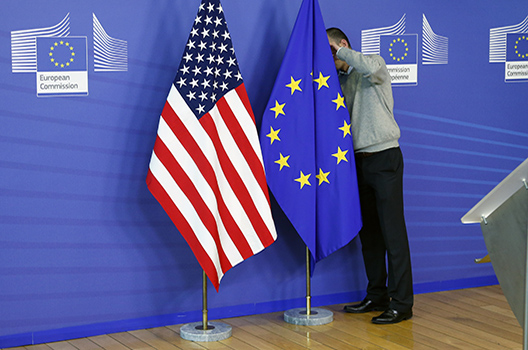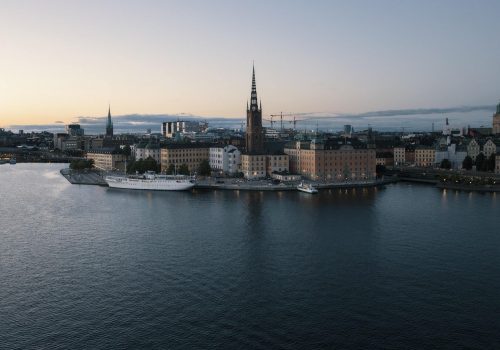On December 15, 2020, the Atlantic Council Northern Europe Office in cooperation with the Konrad-Adenauer-Stiftung (KAS) organized a webinar on the topic of ”European Leadership: Transatlantic relations and the Future of Belarus”. The webinar attracted participants from all around Europe, representing parliaments, governmental institutions, political parties, think-tanks and other organizations.
The panelists of the first panel, ”The German EU Chairmanship and Transatlantic Relations”, were Damon Wilson, Executive Vice President, Atlantic Council; Julius Liljeström, Deputy Director-General, Department for European Security, Ministry for Foreign Affairs, Stockholm; Dr. Steven Everts, Senior Advisor to Josep Borrell, EEAS; Dr. Claudia Major, Head of Research Division, International Security Division, German Institute for International Security Affairs, Berlin. The panel was moderated by Anna Wieslander, Director for Northern Europe, Atlantic Council, Stockholm.
The panelists in the first panel agreed that Germany should continue to have a central role in the transatlantic relationship going forward. They underlined that there is no contradiction in building a stronger and more resilient Europe – which should never mean protectionism – and a strong EU-US relationship. On the contrary, this is crucial in order to tackle issues such as climate change, post COVID-19 recovery and security. They highlighted the urgency of proceeding forward, as the election of President Joe Biden offers a “once in a generation” opportunity to revive the transatlantic relationship. The German presidency in the Council during the second half of 2020 successfully moved initiatives such as the Strategic Compass, the European Peace Facility and third-country participation in PESCO forward, which opens further possibilities for transatlantic cooperation. These were important steps towards an EU which is more able to act for peace and stability.
The panelists of the second panel, ”The Ongoing Revolution in Belarus”, were Valery Kavaleuski, Representative of International Affairs for Mrs. Tsikhanouskaya; Kent Härstedt, Special Envoy, former OSCE Special Coordinator for election monitoring in Belarus, the Ministry for Foreign Affairs, Stockholm; Olof Ehrenkrona, Editorial writer at Swedish Daily Svenska Dagbladet and retired Swedish Diplomat. The panel was moderated by Gabriele Baumann, Resident Representative to the Nordic Countries, Konrad-Adenauer-Stiftung, Stockholm.
The panelists in the second panel underlined that the situation in Belarus is getting worse and that peaceful protesters are continuously arrested. They agreed that the uprising of the people of Belarus is unprecedented in the country’s history, and that the international community needs to continue its support for democratic change. They further agreed that the OSCE is a good platform for dialogue and conflict resolution, and urged Sweden to continue this work during its 2021 chairmanship.
Related Reading
Image: A worker adjusts European Union and U.S. flags at the start of the 2nd round of EU-US trade negotiations for Transatlantic Trade and Investment Partnership at the EU Commission headquarters in Brussels November 11, 2013. (REUTERS/Francois Lenoir)


